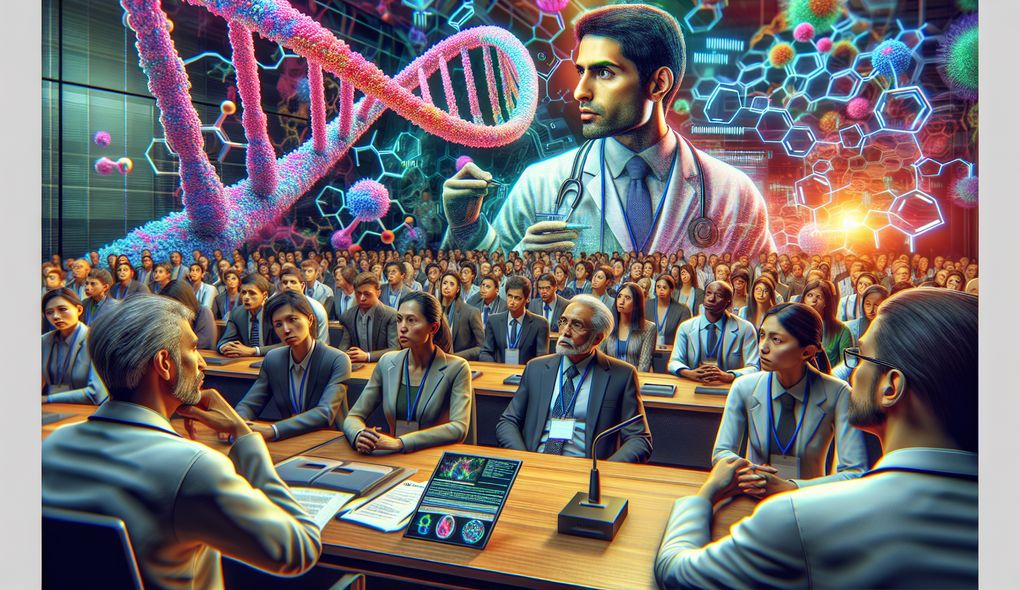Can you explain your experience with molecular diagnostic techniques, such as DNA/RNA extraction, PCR, sequencing, and bioinformatics analysis?
INTERMEDIATE LEVEL

Sample answer to the question:
In my previous role, I gained experience with various molecular diagnostic techniques such as DNA/RNA extraction, PCR, sequencing, and bioinformatics analysis. I have worked with cancer tissue samples, performing advanced molecular and genetic analysis. I have also developed and implemented diagnostic tests to detect and manage cancer. Additionally, I have collaborated with a multidisciplinary team to design and evaluate targeted cancer therapies. I have stayed up to date with the latest scientific advancements in molecular oncology through attending scientific meetings and conferences. I have also mentored junior research staff.
Here is a more solid answer:
In my previous role, I gained extensive experience with molecular diagnostic techniques such as DNA/RNA extraction, PCR, sequencing, and bioinformatics analysis. I have consistently worked with cancer tissue samples, conducting advanced molecular and genetic analysis to identify specific molecular alterations associated with different types of cancers. For example, I successfully identified key genetic mutations using targeted sequencing approaches, which informed personalized treatment decisions for patients. I have also developed and implemented innovative diagnostic tests, including the design of custom primers for highly sensitive and specific detection of cancer biomarkers. Collaboration with a multidisciplinary team has been a crucial aspect of my work, as it allowed me to combine my expertise in molecular biology with the knowledge of clinicians and bioinformaticians to develop effective targeted therapies. I have actively participated in tumor boards and research meetings to present my findings and discuss potential treatment strategies. To stay up to date with scientific advancements, I regularly attend conferences and subscribe to relevant scientific journals. Additionally, I have mentored junior research staff, providing guidance and training on laboratory techniques and experimental design.
Why is this a more solid answer?
This answer provides a more comprehensive and detailed account of the candidate's experience with molecular diagnostic techniques. It includes specific examples of tasks and responsibilities they have handled, as well as the impact of their work, such as personalized treatment decisions based on genetic mutations. The answer also highlights the candidate's collaboration with a multidisciplinary team and their commitment to staying up to date with scientific advancements. However, it can still be improved by providing more specific examples and quantifiable outcomes of the candidate's work.
An example of a exceptional answer:
Throughout my career, I have demonstrated a deep understanding and proficiency in molecular diagnostic techniques, including DNA/RNA extraction, PCR, sequencing, and bioinformatics analysis. I have successfully applied these techniques to study a wide range of cancers, leveraging next-generation sequencing technologies to identify key genomic alterations driving tumor progression and response to therapy. For instance, in a recent project, I developed a targeted sequencing panel to simultaneously profile multiple cancer-associated genes in patient samples, resulting in a comprehensive catalog of actionable mutations that informed treatment decisions. To enhance the diagnostic capabilities of our laboratory, I implemented cutting-edge bioinformatics tools and pipelines that facilitated the identification of novel biomarkers and enabled integration with clinical data for more accurate patient stratification. Collaborating with clinicians, bioinformaticians, and statisticians, I have contributed to the design and execution of clinical trials evaluating targeted therapies. This teamwork has yielded promising results, with several patients achieving long-lasting remission. To ensure continuous professional growth, I actively participate in scientific conferences and engage in online courses to expand my knowledge in molecular oncology. As a mentor, I am passionate about nurturing the next generation of scientists, providing guidance and fostering a collaborative environment where innovation thrives.
Why is this an exceptional answer?
This answer showcases the candidate's exceptional expertise and accomplishments in molecular diagnostic techniques. It includes specific examples of projects and their outcomes, demonstrating the candidate's impact on personalized treatment decisions and laboratory advancements. The answer also highlights the candidate's collaboration with different stakeholders and their commitment to professional growth. The addition of quantifiable outcomes, such as patients achieving long-lasting remission, further strengthens the answer. Overall, this answer demonstrates a high level of proficiency, innovation, and leadership in the field of molecular oncology.
How to prepare for this question:
- Review your experience with molecular diagnostic techniques, highlighting specific tasks and responsibilities you have handled.
- Prepare examples of projects or studies where you have applied molecular diagnostic techniques and achieved significant outcomes.
- Stay updated with the latest advancements in molecular oncology by regularly reading scientific journals and attending conferences.
- Familiarize yourself with bioinformatics tools and techniques used in molecular oncology research.
- Think about your experience collaborating with multidisciplinary teams and the impact of these collaborations on your work.
What are interviewers evaluating with this question?
- Experience with molecular diagnostic techniques
- Experience with cancer tissue samples
- Development and implementation of diagnostic tests
- Collaboration with multidisciplinary team
- Staying up to date with scientific advancements
- Mentoring junior research staff

